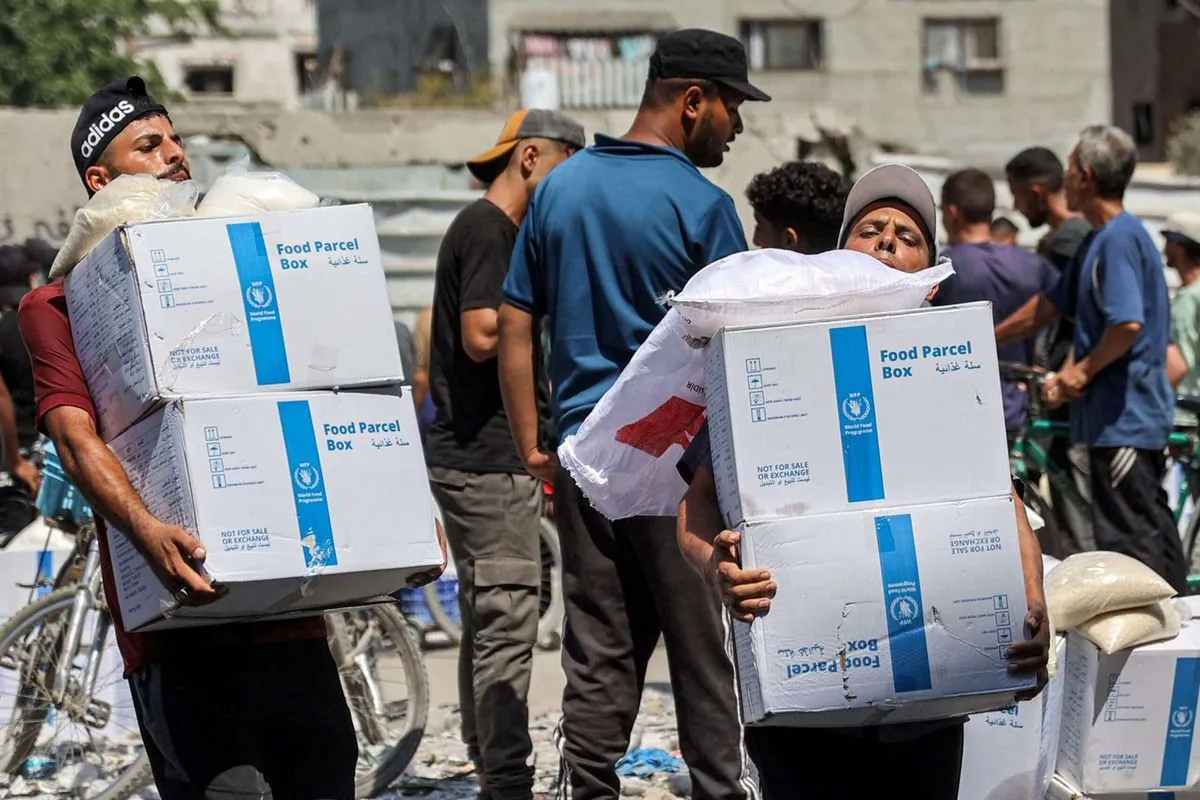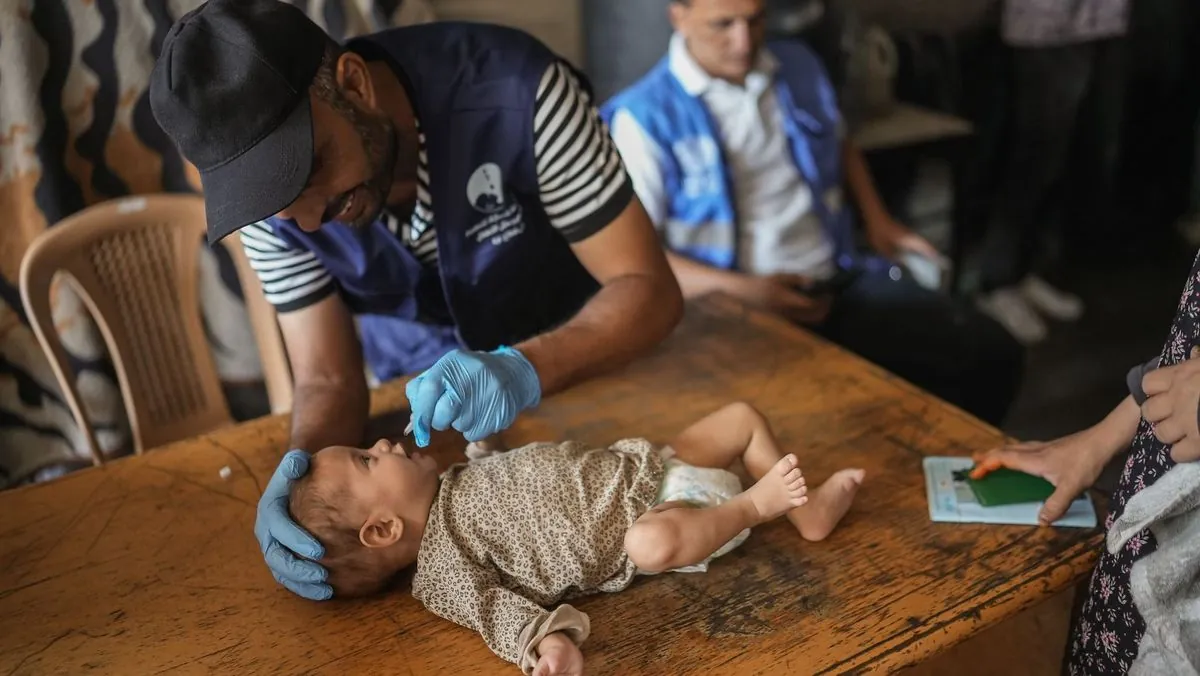UNRWA Reports Progress in Gaza Polio Vaccination Amid Ongoing Conflict
UNRWA announces successful polio vaccination campaign in Gaza, with 187,000 children inoculated. Calls for permanent ceasefire and increased humanitarian aid persist as diplomatic efforts stall.

The United Nations Relief and Works Agency for Palestine Refugees (UNRWA) has reported significant progress in its polio vaccination campaign in Gaza, amidst the ongoing conflict that began 11 months ago. Approximately 187,000 children in central Gaza have received the vaccine, marking a crucial step in preventing the spread of the highly infectious disease.
Philippe Lazzarini, head of UNRWA, expressed satisfaction with the campaign's progress on social media. However, he emphasized the urgent need for a permanent ceasefire, the release of all hostages, and a consistent flow of humanitarian supplies, including medical and hygiene items, into Gaza.
The vaccination effort was initiated following the discovery of a polio case in an infant last month, the first such instance in Gaza in 25 years. This development is particularly concerning given that the World Health Organization had declared the world polio-free just a year ago.

To facilitate the vaccination program, Israel and Hamas agreed to daily eight-hour pauses in pre-specified areas. These temporary ceasefires have provided some respite to the population, but humanitarian organizations stress that more comprehensive measures are necessary to address the broader crisis.
The Gaza Strip, home to approximately 2.3 million people, is one of the world's most densely populated areas. The ongoing conflict has severely impacted its healthcare system, with many hospitals destroyed or damaged. Palestinian authorities attribute the resurgence of polio to this healthcare collapse, while Israeli officials accuse Hamas of using medical facilities for military purposes, a claim the group denies.
COGAT, the Israeli defense ministry agency responsible for coordinating aid deliveries to Palestinian territories, reported that since the conflict's onset, it has facilitated the entry of over 282,000 polio vaccine vials into Gaza, sufficient for more than 2.8 million people. Additionally, approximately 554,000 vaccine vials for various diseases have been delivered to the territory.
Despite the success of the polio campaign, diplomatic efforts to secure a permanent ceasefire have reached an impasse. Benjamin Netanyahu, the Israeli Prime Minister, insists on maintaining an Israeli military presence in the Philadelphi Corridor, a narrow strip of land along the Gaza-Egypt border. Hamas, conversely, demands a complete withdrawal of Israeli forces from Gaza as part of any agreement to end the conflict.
The diplomatic standstill is causing frustration among Israel's international allies and the 15 members of the United Nations Security Council. Slovenia's UN envoy, currently presiding over the council, warned that patience is wearing thin, and the global body may consider taking action if a ceasefire cannot be brokered soon.
"The only way a deal could be reached was if Israel agreed to a U.S. proposal on July 2, endorsed by the Security Council, and accepted by the group."
Meanwhile, military operations continue in various parts of Gaza. The Israeli military reports killing numerous Hamas operatives and striking military infrastructure over the past 24 hours. In Rafah, near the Egyptian border, Israeli troops claim to have eliminated around 200 Palestinian gunmen over the past week. Hamas denies using civilian facilities for military purposes.
The conflict, which began on October 7, 2023, with a Hamas attack on southern Israel, has resulted in over 40,800 Palestinian casualties in Gaza, according to the enclave's health ministry. The situation remains dire, with urgent calls for a resolution to the conflict and improved humanitarian access to the beleaguered population.


































